Successful Awards 2020-21
City of Women (London) - Memory Map
Leah Lovett (UCL Bartlett Centre for Advanced Spatial Analysis), Duncan Hay (UCL Bartlett Centre for Advanced Spatial Analysis), Montaz Marche (University of Birmingham)
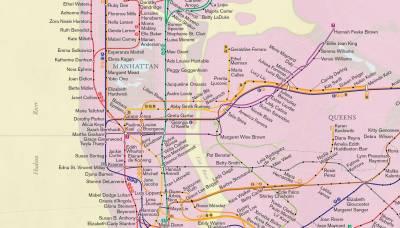
Links
- Discover the Memory Mapper Toolkit
- Read Haymarket Books City of Women (London) press release
- Read WOW Foundation press release
- Check Leah Lovett, Duncan Hay, and Montaz Marché profiles
Award £1840
Image: Detail of Rebecca Solnit, City of Women (New York), © Haymarket Books
100 histories of 100 worlds in 1 object: world cafes
Alice Stevenson (UCL Archaeology), Mirjam Brusius (German Historical Institute London) and Benjamina E. Dadzie (Museum of Archaeology and Anthropology, University of Cambridge)
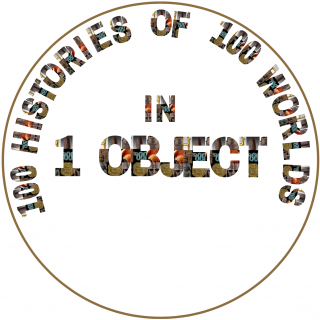
Link
Award £1800
Living through heritage: a forum on participation, performativity, and care
Helia Marçal (UCL History of Art), Rebecca Gordon (UCL History of Art) and Renata F. Peters (UCL Institute of Archaeology)

Heritage, Participation, Performativity, Care aims to create possibilities for a constructive and compassionate exchange—one that is purposefully about communicating and creating affective (not necessarily productive) relations. We want to encourage new forms of discourse to counter institutional hegemony in relation to forms of performativity, living heritage, and participation. The event is situated online, not simply in mitigation of the global pandemic, but in acknowledgement of the need to have a geographically and culturally diverse exchange, and in recognition of the possibilities this format offers to people who want to participate and might not have the same possibilities to do so if the event was to happen in-person.
The forum Heritage, Participation, Performativity, Care is a one-day online event taking place on 12th March 2021, 10:00 GMT. It seeks to explore processes of care and participation concerning living heritage and performative practices.
Award £2000
Links
ɛmti bag nɔ ba tinap* - Documenting the intangible with the diaspora and the homeland
Nenna Orie Chuku (UCL Department of Information Studies), in association with Krio Heritage Foundation
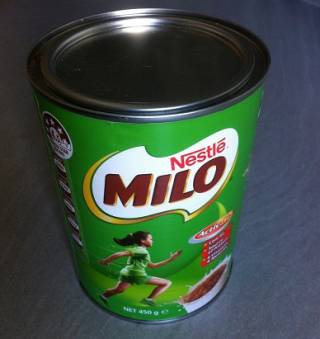
Links
- Read about Nenna Orie Chuku
- Check the Krio Heritage Foundation
- Read more about Krio
- Check Sierra Leone Heritage website
- KRIO - Parebul en Povabs (Krio Parables and Proverbs)
Sat, 24 July 2021• 16:00 BST - Put Stop: The Engagement
Sat, 21 August 2021 • 16:00 BST - The Gombay: An introduction to Krio music
Date: Sat, 18 September 2021 • 16:00 BST - Read the blog Collaborating with those at home and overseas: Reliving and reminiscing about Sierra Leonean Krio heritage and culture
- Check the project final report :
Award £845
Image: Hughesdarren, CC BY-SA 4.0, via Wikimedia Commons. Milo cans were used in the Goombay (a West African music genre) by some Sierra Leonean Krios
Masking: Ecology, Crisis & Symbolism
Sophie Page (UCL History), Lucy Orta (University of the Arts, London) and Amita Murray (New College of the Humanities)
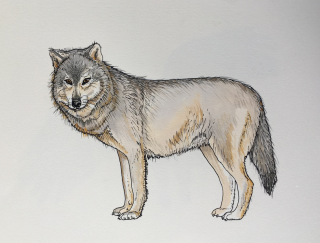
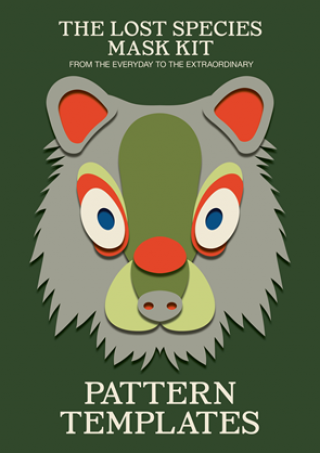
The Masking project will be rolled out over 4-days (6-9 April), for ca. 100 year-12 students. Participants will style and photograph their mask at home, with guidance from professional instructors and Lucy. A webinar led by Sophie will help students create connections to local environments and history, for example, Stratford Langthorne Abbey and Epping forest. The novelist and short story writer Amita Murray will lead a creative writing workshop for students writing a manifesto to accompany their mask making that raises people’s awareness of the climate emergency, species extinction and biodiversity loss.
Award £2000
Links
Images: (top) Wolf from the Lost Species Handbook; (bottom) Lost Species Mask Kit © Lucy Orta
 Close
Close

